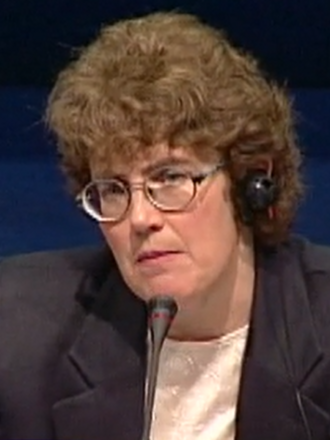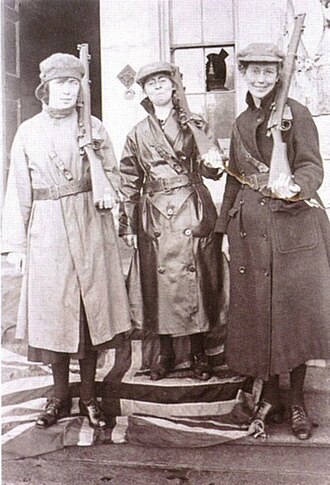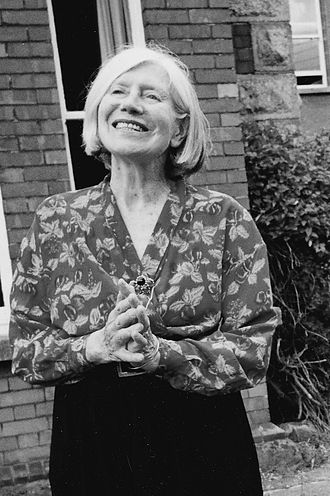Discover Your Roots
SIGN UPDiscover Your Roots
SIGN UPEithne is a female name of Irish origin, meaning "grain" or "kernel." It has a rich history and is popular in Ireland. The name is associated with various historical and legendary figures, including saints and princesses. Eithne is also borne by modern influential individuals such as Irish republican activist Eithne Coyle and renowned singer and composer Enya, whose birth name is Eithne Ní Bhraonáin. The name has been Anglicized as Edna, though the two names are etymologically unrelated. Eithne holds significance in Irish culture and has been celebrated in various fields, including politics, music, and activism. Whether in ancient legends or modern achievements, the name Eithne carries the timeless connotation of strength and resilience.

Eithne FitzGerald, born on November 28, 1950, is an Irish economist and former Labour Party politician known for her significant contributions to Irish politics. Serving as a Teachta Dála (TD) for the Dublin South constituency from 1992 to 1997, FitzGerald made a notable impact during her single term. Her political journey was marked by various attempts before securing her position, eventually topping the poll with the highest first preference vote in the country during the 1992 general election.FitzGerald’s tenure as a Minister of State in the 23rd and 24th Government of Ireland was characterized by her role at the Department of Finance and her instrumental involvement in the National Development Plan. Notably, she played a crucial part in the introduction of Freedom of Information legislation in Ireland, leaving a lasting legacy in the country's governance.Even after leaving office, FitzGerald continued to be an influential figure in Irish politics, though she was not re-elected in subsequent general elections. Her contribution to public service and her marriage to John D. FitzGerald, the son of Taoiseach Garret FitzGerald, further solidify her place in Irish political history.

Eithne Coyle (1897–1985), also known as Eithne Ni Cumhaill, was an influential Irish republican activist during the period of 'revolutionary Ireland' (c1912-c1924). Born in Killult, County Donegal, she joined Cumann na mBan in 1917 and played a significant role in fundraising and anti-conscription campaigns. Coyle's involvement in the Irish War of Independence and the subsequent Irish Civil War led to her being targeted by the Irish Free State forces. She gained notoriety for her participation in two high-profile prison escapes in the 1920s. Coyle supported the anti-treaty faction following the signing of the Anglo-Irish Treaty and was appointed as an organizer for Cumann na mBan in the North West of Ireland. She worked to reorganize the movement in Ulster and enforced Sinn Féin's 'Belfast Boycott' in response to the large-scale expulsions of Catholic workers from their jobs in Belfast. Coyle's activities, which included intercepting messages and public acts of defiance, made her a prominent figure in the resistance movement. Her resilient and courageous efforts contributed significantly to the struggle for Irish independence.

Eithne Strong (née O'Connell; 1923–1999) was a renowned Irish poet and writer, proficient in both Irish and English. She made her literary debut with poems in the magazine Combhar and An Glor in 1943–44 under the name Eithne Ni Chonaill. Strong's influence extended beyond her creative works, as she was a co-founder of the Runa Press, known for featuring artwork by eminent artists such as Jack B. Yeats and Sean Keating. Born in Glensharrold, County Limerick, to school teachers, she later moved to Dublin and pursued various roles, including teaching, freelance journalism, and representing Irish writing in Europe and North America.Strong's literary contributions encompass poetry, fiction, translation, and criticism, with her works published in Ireland and overseas. Notable among her accolades is the Kilkenny Design Award for "Flesh – The Greatest Sin" in 1991. She was also a member of Aosdána, an affiliation of Irish artists. Strong's legacy is honored through the Rupert & Eithne Strong Poetry Prize and the Strong/Shine Award. Her manuscripts are preserved at the National Library of Ireland, reflecting her enduring impact on Irish literature. Eithne Strong's profound literary heritage continues to inspire and resonate with readers globally.


All images displayed on this page are sourced from Wikipedia or Wikimedia Commons.We use these images under their respective Creative Commons or public domain licenses. Wherever applicable, author attributions and license information are provided. If you believe an image is used incorrectly or outside its license terms, please contact us so that we can review and correct the issue.